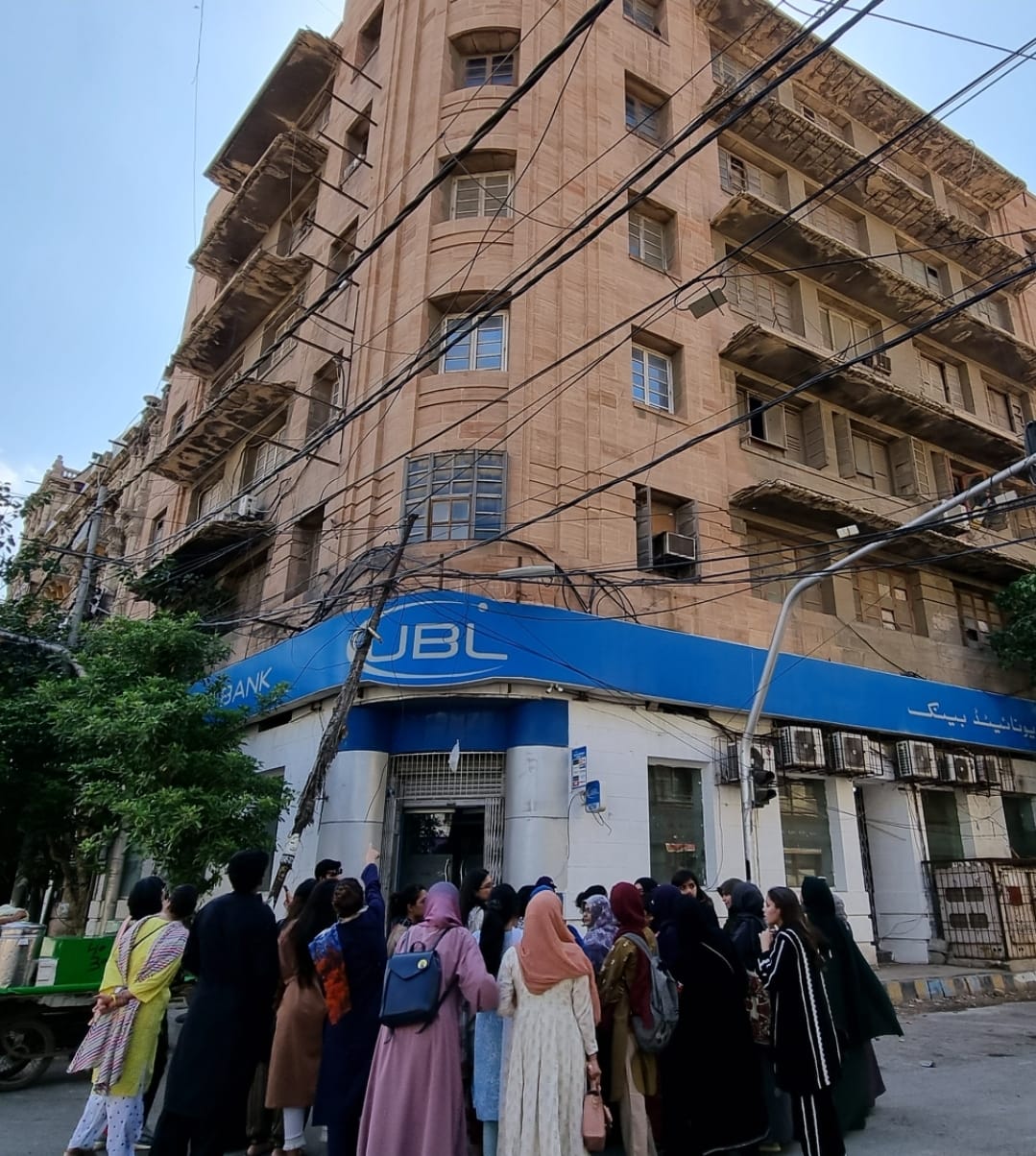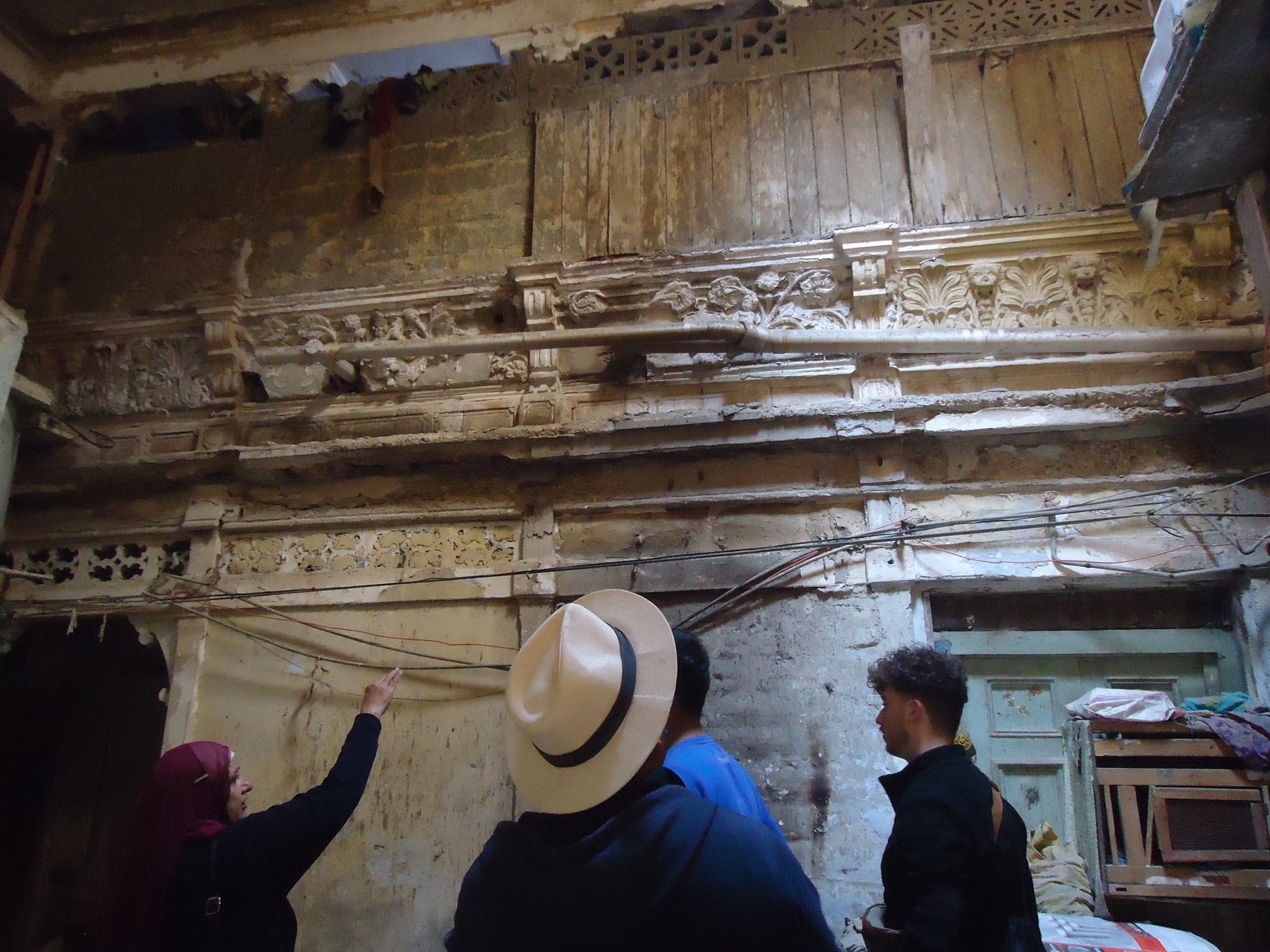KARACHI: Every Sunday, Shaheen Nauman, a seasoned and enthusiastic guide, leads a group of people down the bustling pavements of Karachi to help them explore the rich architectural magnificence of the city. She stops as soon as they approach a heritage building and begins to share its detailed history with them.
Nauman’s ambition is not just to highlight Karachi’s rich and forgotten history but also foreground the cultural diversity which traditionally remained its hallmark.
Organized by the Pakistan Chowk Community Center, a platform encouraging people to engage with history and arts, the heritage walk began in 2018 to preserve Karachi’s cultural inheritance. The objective of the activity was to create an open space for the public to deepen their knowledge of the city.
“The heritage walk is a discourse, or you can say, a conversation that we started to protect and preserve the heritage of Karachi,” 67-year-old Nauman told Arab News on Sunday before taking a group of citizens with her to show them nearby areas.

The picture posted on May 4, 2023, shows people looking at the old Bank of India building in Karachi, Pakistan. (Heritage Walk/Facebook)
She dispelled the impression that Karachi was only home to colonial buildings, emphasizing that it had a diverse architectural landscape.
Focusing on the Pakistan Chowk area, which used to be a vibrant community space in the past, Nauman said Karachi was always known for its multicultural character where people belonging to different faiths coexisted and contributed to its development.
As the walk continued, she stopped by buildings that required upkeep while sharing their stories. She pointed toward the Menghraj Dwarkadas Nagpal Building, which once served as a hostel for Hindu boys, where statues of deities got damaged while the occupants were trying to put sewerage lines through the murals.

The picture posted on February 8, 2023, shows sewerage lines passing through the murals plastered in Menghraj Dwarkadas Nagpal Building in Karachi, Pakistan. (Heritage Walk/Facebook)
The community center also intends to preserve the severely damaged Kanji building, constructed by a Hindu merchant somewhere in the 19th century, whose façade is the only thing that continues to stand. Nauman passionately speaks about its beautiful stained-glass windows, with vibrant colors of red, green, yellow, and blue, which instantly capture the attention of a passerby even from a distance.
Sehar Shaikh, a banker who came to participate in the walk, maintained the government should play an active role in protecting Karachi’s heritage.
“I think the government should be doing something about this because everywhere in the world heritage buildings are protected,” she said. “We are trying to protect history for our future generations.”
Aleena Rizwan, a student, however, argued that the responsibility for that primarily rested with people, not the government.
“For any culture to carry on, it is very essential for the people living in that country to love [it],” she said. “As long as they don’t want to keep it in order, don’t work for it, the government cannot do anything.”
Undeterred by scorching heat, Nauman was passionate led the tour. She said she had been brought up in Karachi and wanted to do something for the city where she was raised.
“I started doing the walks in February 2018,” she said. “Rain or sunshine, whatever it is, I am here.”















